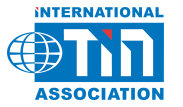 Researchers at Tokyo Institute of Technology, previously collaborating with Toyota, have developed a tin silicon superionic conductor for solid state lithium ion batteries used in electric vehicles.
Researchers at Tokyo Institute of Technology, previously collaborating with Toyota, have developed a tin silicon superionic conductor for solid state lithium ion batteries used in electric vehicles.
Toyota has announced that it aims to leapfrog early electric vehicle battery designs based on liquid electrolytes and launch a solid state battery for vehicles in 2022. Hyundai, Dyson and others are also now racing towards cheaper, safer and higher performing solid state technologies.
Lithium Tin Phosphorus Sulphide (LSPS) has been commercially available as NANOMYTE SSE-10 from NEI Corporation, US for some time and germanium analogues have also been studied. Now the Tokyo team has demonstrated a Lithium Tin Silicon Phosphorus Sulphide (LSSPS) with a 6% wt/wt tin content that achieved a high conductivity of 1.1 x 10-2 S cm-1 at room temperature. These ‘superionic’ materials enable the rapid flow of ions through 2 and 3-dimensional tunnels in the crystal structure.
Further work is required to optimise the new material for different uses and the road to commercialisation of solid state vehicles is expected to be long, but the new material has given a significant new impetus.
Tokyo Institute of Technology paper July 2017
Greentech media article on Toyota solid state initiative July 2017
NEI Corporation NANOMYTE webpage
< Back to Lithium Ion Batteries
< Back to New Technologies
